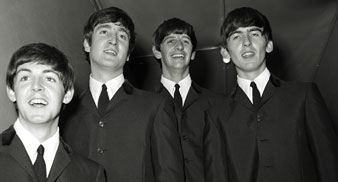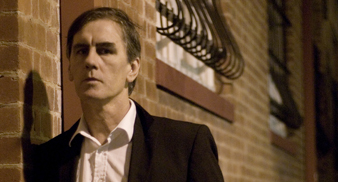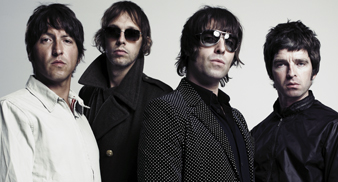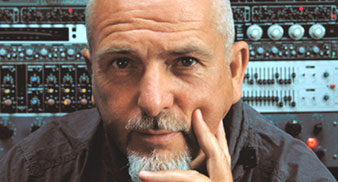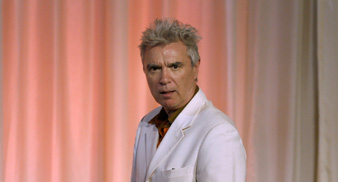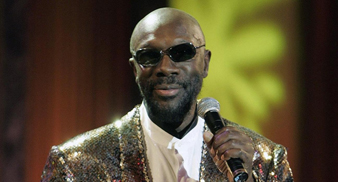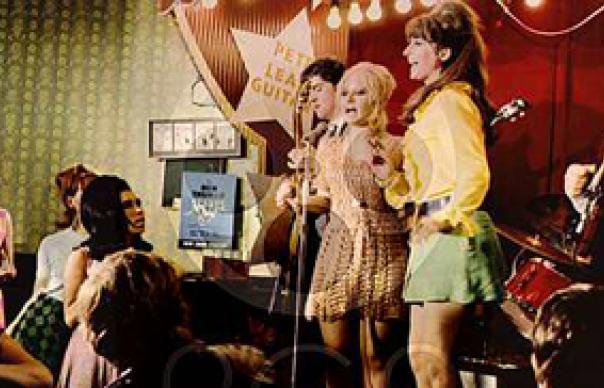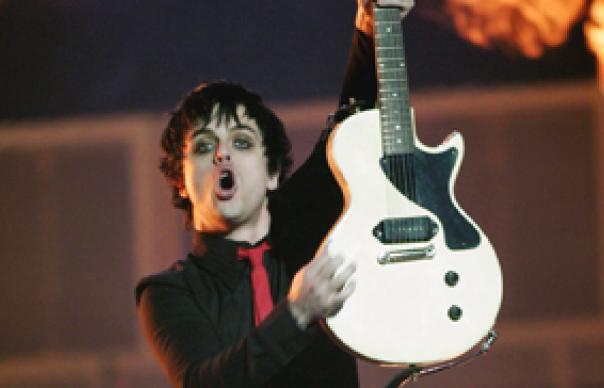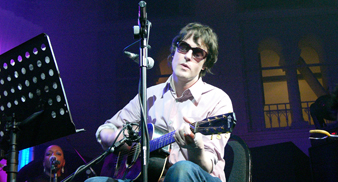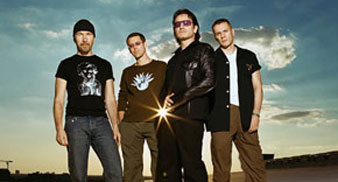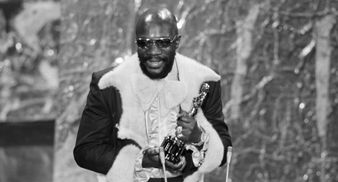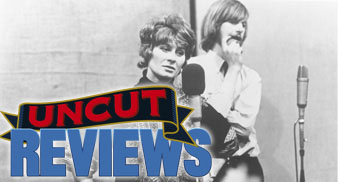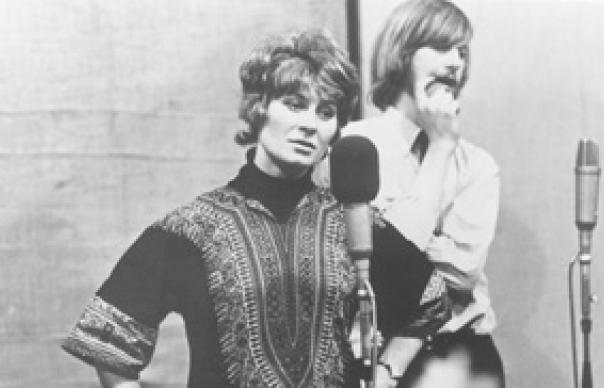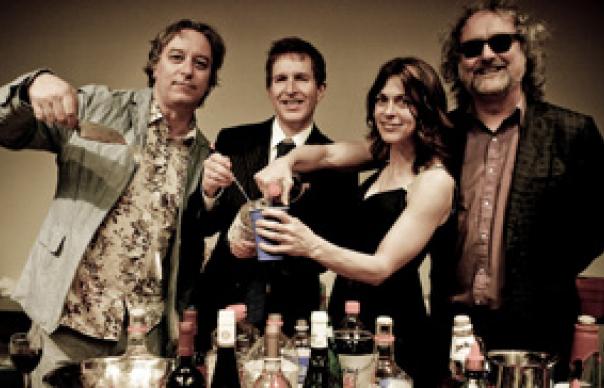Just a few days now till this year’s Green Man Festival kicks off in the Brecon Beacons, Wales.
The three day event (August 15-17) is set to be headlined by Spiritualized (pictured above), Super Furry Animals and the reformed Pentangle, who will culminate their one-off 40th anniversary tour at the festival.
The group comprising original members Bert Jansch, John Renbourn, Jacqui McShee, Danny Thompson and Terry Cox recently reformed to play a one-off 40th anniversary concert, but demand has forced them to play a world tour.
Other artists playing the intimate, three stage festival include Richard Thompson, Howlin Rain, Black Mountain, Drive By Truckers, Iron & Wine, Wild Beasts, The National and The Cave Singers.
Information about Green Man is available from the event’s official website here:www.thegreenmanfestival.co.uk.
The stage times revelead today for the weekend’s festivities are as follows:
FRIDAY 15TH AUGUST
MAIN STAGE:
11.30-12.30am Spiritualized
10.00-10.45pm Drive-By Truckers
8.30-9.15pm King Creosote
7.00-7.45pm James Yorkston
5.30-6.15pm Alela Diane
4.30-5.00pm Sennen
3.30-4.00pm Fight Like Apes
2.30-3.00pm Agnostic MGC
1.30-2.00pm Truckers of Husk
12.30-1.00pm Cats in Paris
FOLKEY DOKEY:
11.00-11.45pm Black Mountain
9.30-10.15pm The Cave Singers
8.00-8.45pm F***Buttons
6.30-7.15pm O’Death
5.00-5.45pm The War On Drugs
4.00-4.30pm One Little Plane
3.00-3.30pm
2.00-2.30pm Mugstar
1.00-1.30pm Threatmantics
12.00-12.30pm Green Poll Winners – Booger Red
GREEN MAN CAFÉ:
11.15-12.00pm Ben Ottewell
9.45-10.30pm Lou Rhodes
8.15-9.00pm Cath and Phil Tyler
6.45-7.30pm Burning Leaves
5.15-6.00pm Rod Thomas
4.15-4.45pm Mary Hampton
3.15-3.45pm Paul Marshall
2.15-2.45pm Sara Lowes
1.15-1.45pm David A. Jaycock
12.15-12.45pm George Thomas
SATURDAY 16TH AUGUST
MAIN STAGE:
11.30-12.30am Super Furry Animals
10.00-10.45pm Richard Thompson
8.30-9.15pm Junior Boys
7.00-7.45pm Howlin Rain
5.30-6.15pm School of Language
4.30-5.00pm Devon Sproule
3.30-4.00pm Jennifer Gentle
2.30-3.00pm Babel
1.30-2.00pm 9Bach
12.30-1.00pm The Saffron Sect
FOLKEY DOKEY:
11.00-11.45pm Lightspeed Champion
9.30-10.15pm Archie Bronson Outfit
8.00-8.45pm Wild Beasts
6.30-7.15pm Eugene McGuinness
5.00-5.45pm Emmy The Great
4.00-4.30pm North Sea Radio Orchestra
3.00-3.30pm The Yellow Moon Band
2.00-2.30pm The Drift Collective
1.00-1.30pm Cate Le Bon
12.00-12.30pm Brigyn
GREEN MAN CAFÉ
11.15-12.00pm Badly Drawn Boy
9.45-10.30pm Heather Jones
8.15-9.00pm John Stammers
6.45-7.30pm Gwyneth Glyn
5.15-6.00pm Essie Jain
4.15-4.45pm The Orange Blossom Special
3.15-3.45pm Clare Maguire
2.15-2.45pm Duke Garwood
1.15-1.45pm The Swanton Bombs
12.15-12.45pm Pamela Wyn Shannon
SUNDAY 17TH AUGUST
MAIN STAGE:
10.45-11.45pm Pentangle
9.15-10.00pm Iron and Wine
7.45-8.30pm The National
6.15-7.00pm Damien Jurado
5.00-5.45pm Laura Marling
4.00-4.30pm Los Campesinos!
3.00-3.30pm Simone White
2.00-2.30pm Bowerbirds
1.00-1.30pm Radio Luxembourg
12.00-12.30pm Cymbient
FOLKEY DOKEY:
11.00-11.45pm Caribou
9.30-10.15pm Magik Markers
8.00-8.45pm Nina Nastasia
6.45-7.30pm The Peth
5.30-6.15pm The Accidental
4.30-5.00pm Prince Rama of Ayodhya
3.30-4.00pm The Owl Service
2.30-3.00pm Mumford & Sons
1.30-2.00pm Moon Music Orchestra
12.30-1.00pm Wolf People
GREEN MAN CAFÉ:
10.15-11.15pm Little Wings
9.00-9.45pm Pete Molinari
7.45-8.30pm Wildbirds & Peacedrums
6.30-7.15pm Sefa
5.15-6.00pm Nic Dawson Kelly
4.15-4.45pm City Reverb
3.15-3.45pm Beth Jeans Houghton
2.15-2.45pm Pete Greenwood
1.15-1.45pm Jane Weaver
12.15-12.45pm The Gentle Good
Pic credit: Neil Thomson



